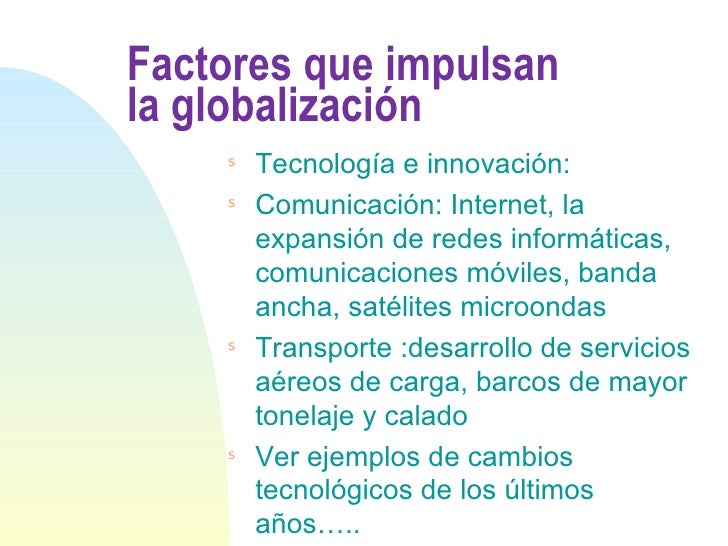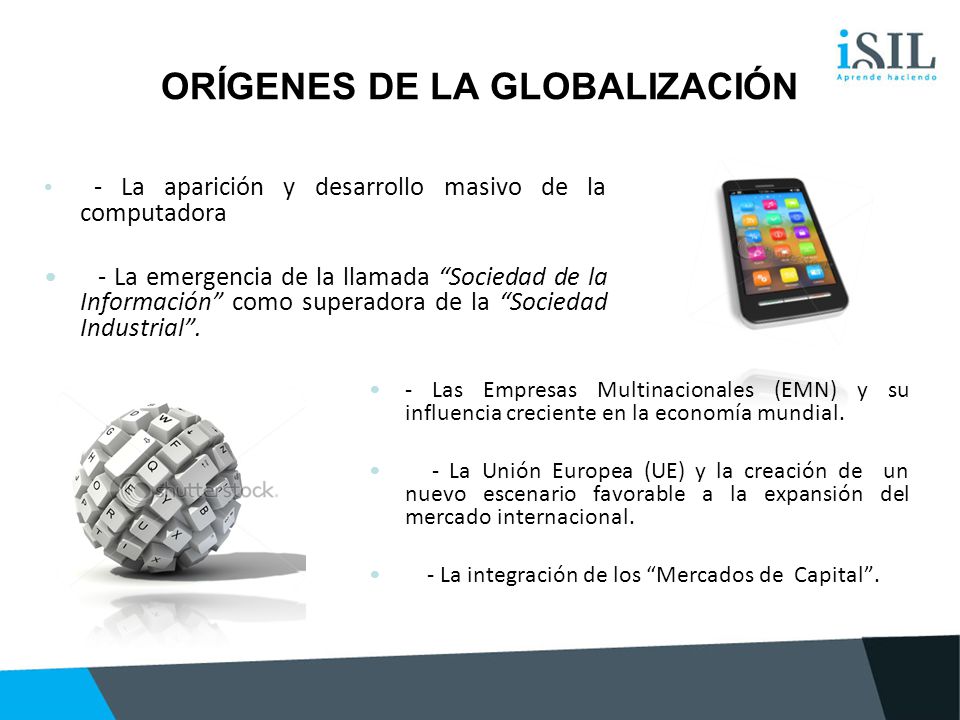Informacion De La Globalizacion

- INFORMACION CONOCIMIENTO BIBLIOTECAS MARCO GLOBALIZACION NEOLIBERAL PEDRO-GIMENO, JAVIER COO LOPEZ on Amazon.com.
- /Medios de comunicacion/la-globalizacion-de-la-informacion. Los derechos de propiedad intelectual de la web hiru.eus y de los distintos elementos en ella contenidos.
Globalization (or globalisation) describes an ongoing process by which regional economies, societies and cultures have become integrated through a globe-spanning network of exchange. The term is sometimes used to refer specifically to economic globalization: the integration of national economies into the international economy through trade, foreign direct investment, capital flows, migration, and the spread of technology.
Causas De La Globalizacion
However, globalization is usually recognized as being driven by a combination of economic, technological, sociocultural, political and biological factors.The term can also refer to the transnational dissemination of ideas, languages, or popular culture. The United Nations ESCWA has written that globalization 'is a widely-used term that can be defined in a number of different ways. When used in an economic context, it refers to the reduction and removal of barriers between national borders in order to facilitate the flow of goods, capital, services and labour.


Although considerable barriers remain to the flow of labour. Globalization is not a new phenomenon. It began in the late nineteenth century, but its spread slowed during the period from the start of the First World War until the third quarter of the twentieth century. This slowdown can be attributed to the inwardlooking policies pursued by a number of countries in order to protect their respective industries.
However, the pace of globalization picked up rapidly during the fourth quarter of the twentieth century.' Finally, Takis Fotopoulos argues that globalisation is the result of systemic trends manifesting the market economy’s grow-or-die dynamic, following the rapid expansion of transnational corporations.
Because of the fact that these trends have not been offset effectively by counter-tendencies that could have emanated from trade-union action and other forms of political activity, the outcome has been globalisation. This is a multi-faceted and irreversible phenomenon within the system of the market economy and it is expressed as: economic globalisation, namely, the opening and deregulation of commodity, capital and labour markets which led to the present form of neoliberal globalisation; political globalisation, i.e., the emergence of a transnational elite and the phasing out of the all powerful-nation state of the statist period; cultural globalisation, i.e., the world-wide homogenisation of culture; ideological globalisation; technological globalisation; social globalisation.
Mtk sp tidak terdekteksi hd. IMPACTO DE LA GLOBALIZACION EN LOS SISTEMAS DE INFORMACION.